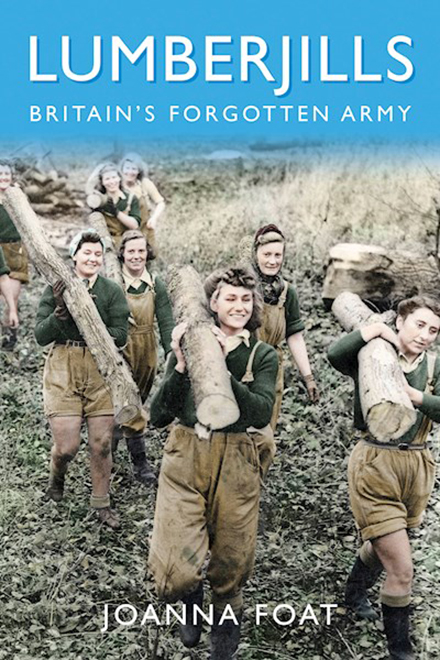
When war was declared in 1939, Britain was almost completely dependent on imported timber but only had seven months of it stockpiled. Timber was critical to the war effort: it was needed for everything from aircraft and shipbuilding to communications and coal mining. The British timber trade was in trouble. Enter the Lumberjills. Sources: Timberbiz, Express UK
Lacking in both men and timber, the government made a choice. Reluctantly, they opened lumber work for women to apply – and apply they did.
By 1942, a wartime career in forestry proved to be appealing for women. The promise of travel, better hours than the Land Army and a more generous pay scale attracted volunteers in their droves. About 250 women between 18 and 35 signed up to the corps each month.
Preferring forestry to the munitions factories, an estimated 15,000 women at the peak of the Women’s Timber Corps were felling trees, driving trucks and using cross-cut saws in aid of the cause.
These women became fondly known as the Lumberjills. But although it was an attractive wartime job, life was far from easy. Subject to prejudice, ridicule and sexism, these women were soon labelled the Forestry Handicap.
The Lumberjills’ contribution to the wartime effort was undeniable. During the Second World War, more timber was produced from British woodlands than ever before in history. The Women’s Timber Corps had thousands of members who would prove themselves as strong and as smart as any man: they felled and crosscut trees by hand, operated sawmills, and ran whole forestry sites.
They may not have been on the front line, but they fought their own battles on the home front for respect and equality. However, the feeling of being neglected stayed with the women for years afterwards.
Then, more than 60 years later in 2007, the women were given their first nod of official recognition when the Forestry Commission unveiled a memorial in Aberfoyle, Perthshire. A short while later, the government announced that the Women’s Land Army and Timber Corps would receive a special badge of honour.
In Lumberjills, researcher Joanna Foat tells their story for the first time, and gives them the recognition they deserve.





